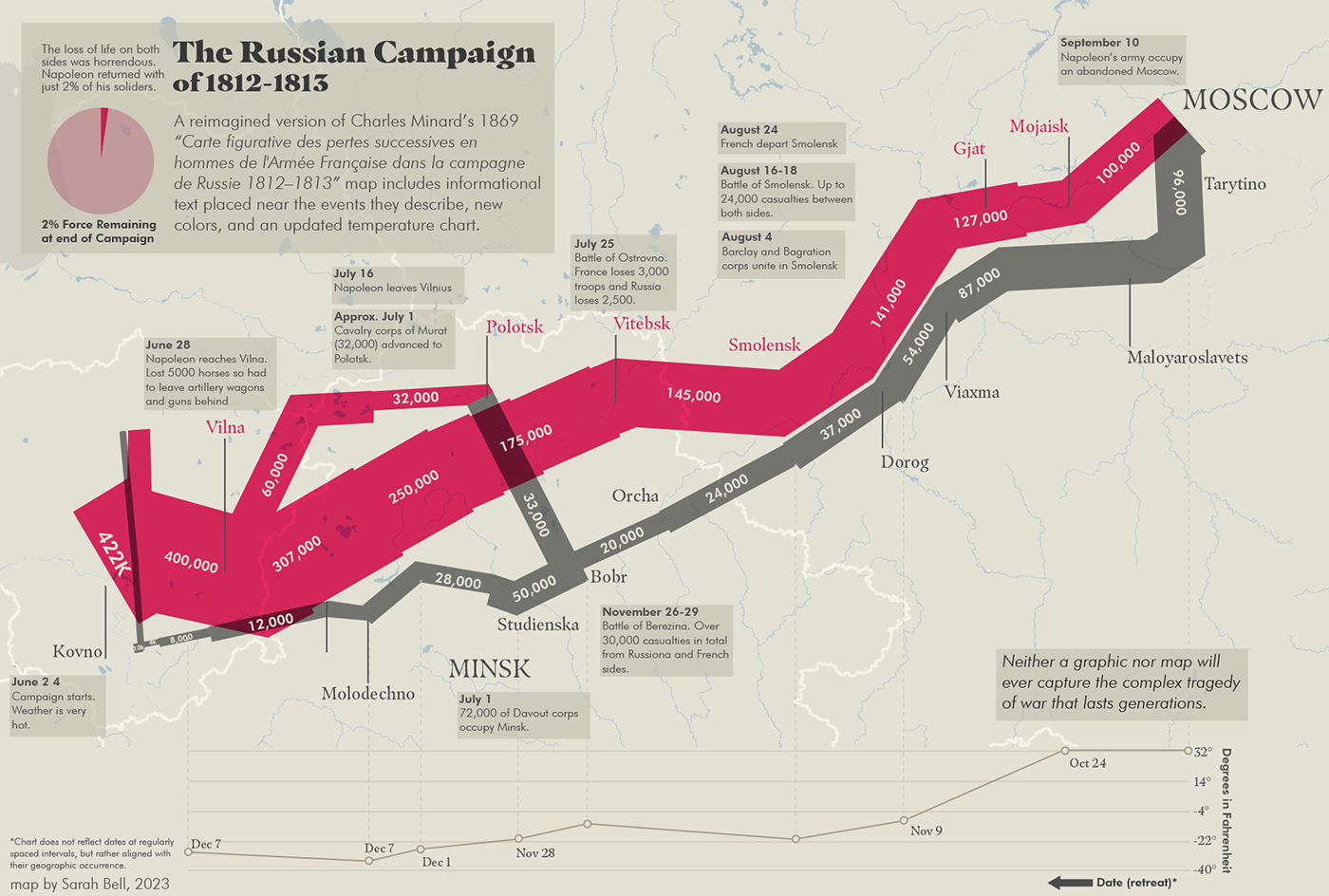Creator: Sarah Bell
Insights
Napoleon's invasion of Russia in 1812-1813 was a pivotal moment in his career and in European history. The campaign was a disastrous failure, resulting in the loss of hundreds of thousands of French lives and marking a turning point in Napoleon's fortunes.
Here are some key aspects about the campaign:
Napoleon's Ambitions and Miscalculations: Driven by his desire for dominance, Napoleon launched an invasion of Russia in 1812, underestimating the vastness of the country and the harshness of its climate.
Russia's Scorched-Earth Policy and Fabian Strategy: The Russians implemented a scorched-earth policy, destroying resources and supplies as they retreated, while employing a Fabian strategy of skirmishes and raids to wear down the French army.
The Battle of Borodino and Moscow's Burning: The Battle of Borodino, though a tactical victory for the French, came at a heavy cost, leaving both armies weakened. The capture of Moscow brought little relief, as the city was largely burned to the ground, depriving the French of supplies.
The Disastrous Retreat and Napoleon's Downfall: The harsh winter and lack of supplies forced a retreat, turning into a catastrophe for the French. Disease, starvation, and Cossack attacks decimated the Grande Armée, marking a turning point in Napoleon's fortunes.
Russia's Triumph and Europe's Reshaping: Russia's victory over Napoleon demonstrated its newfound strength, while Napoleon's empire began to crumble. The campaign had far-reaching consequences, reshaping the European political landscape and setting the stage for the post-Napoleonic era.





